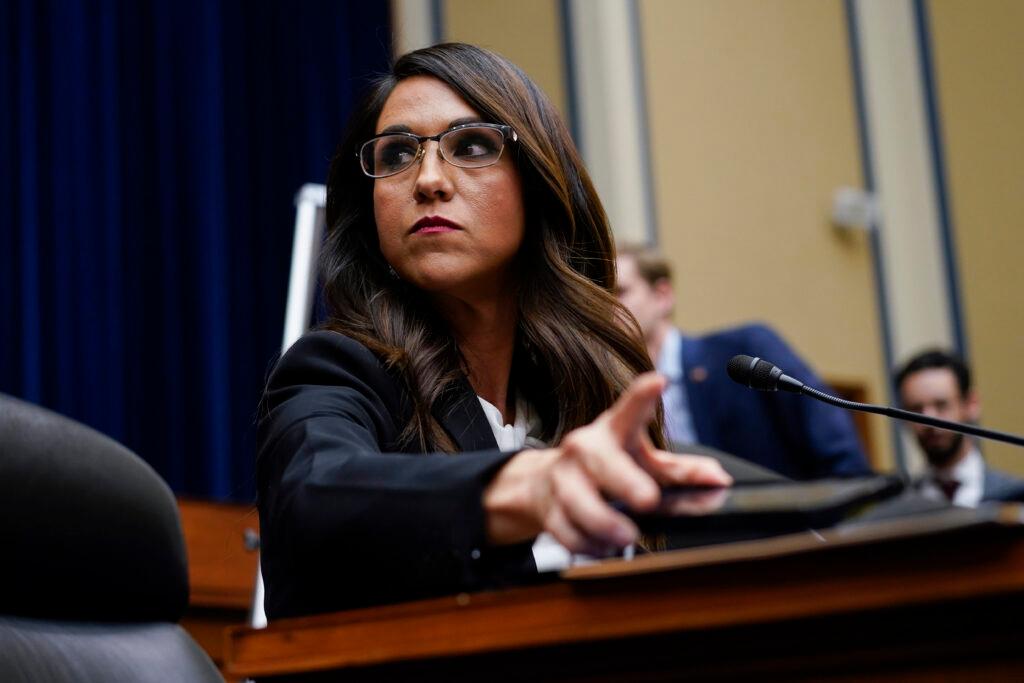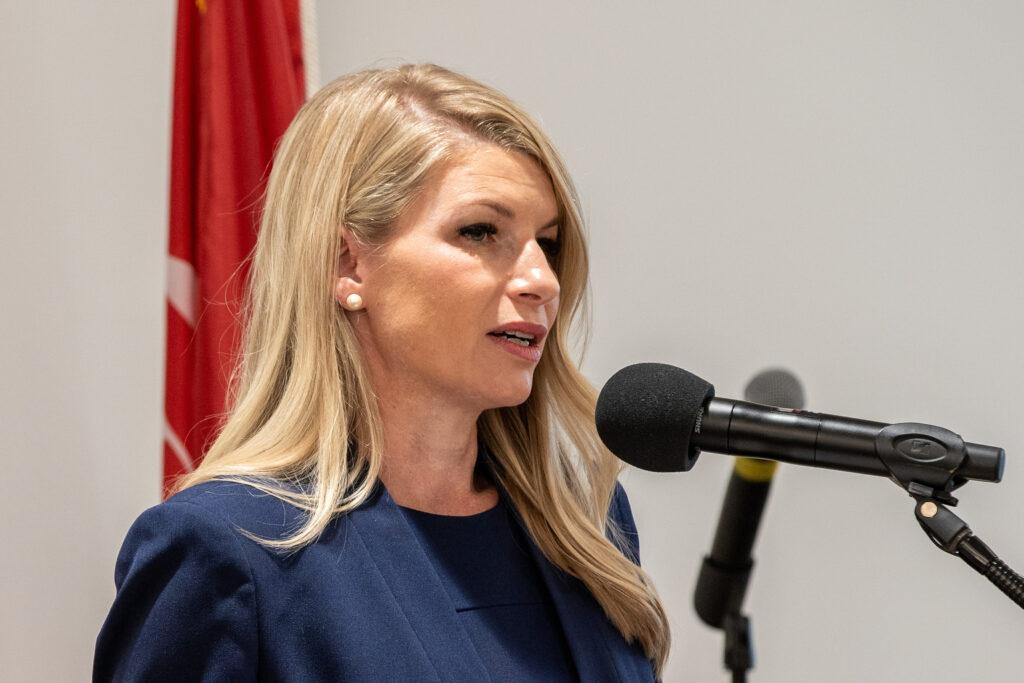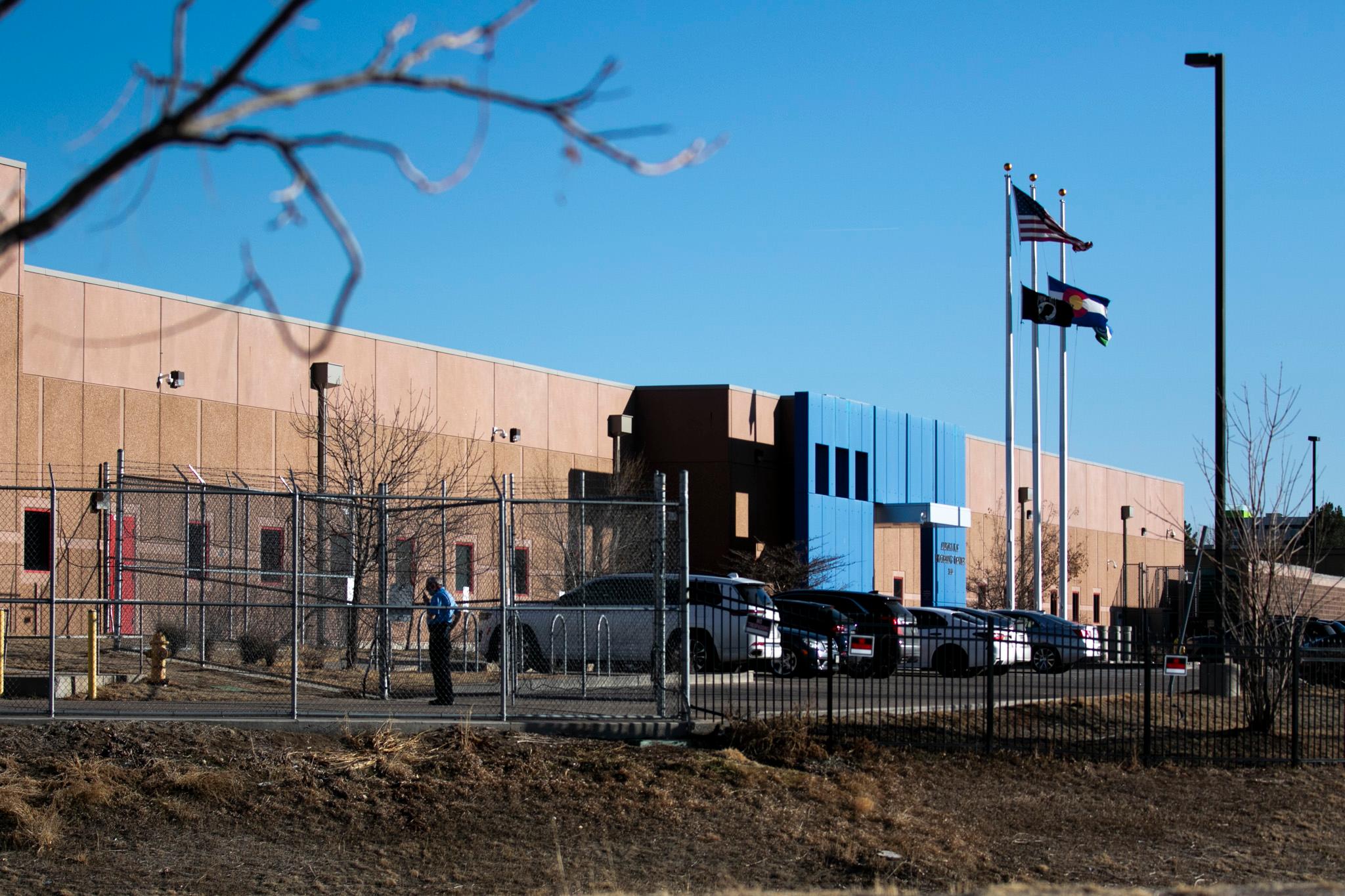
The start of a new Congress is like the start of the new year: Everyone is excited and filled with plans and resolutions, including Colorado’s congressional delegation.
Rep. Gabe Evans said he’s “just looking forward to rolling up our sleeves and getting to work on those crucial items that the American people sent us here to do.” The newly elected Republican from the 8th Congressional District described that as “specifically around things like border security, public safety and making sure that we're working on the cost of living.”
Democratic Rep. Jason Crow also said he’d focus “relentlessly” on bringing down costs for Coloradans.
“The cost of housing, transportation, education — these are things that are far too high for folks,” he said. “I know how hard it is to make ends meet and to have to work really hard … just to get by. And that's the story of too many folks in Colorado. So, we're going to focus on that.”
But specific proposals to tackle things like the cost of living may take a back seat as Congress kicks off.
Reconciliation on the GOP agenda
Ask any Republican on Capitol Hill and they’ll tell you the election was a mandate for their policies, even though the results show a nation still closely divided. The first few months of this Congress will center around getting their top priorities to the new president, well before any risk of midterm elections scrambling their majority.
“I mean obviously we're going to be overly focused on reconciliation and getting that done and finished here in the next little bit,” said Rep. Jeff Crank, newly elected to represent Colorado’s 5th Congressional District.
Republicans are still well short of the 60 votes needed to ensure their bills' safe passage through the Senate, so they’re planning to do a lot through the process known as reconciliation. This special legislative maneuver allows for bills related to spending, taxes and debt to move at an expedited pace and, crucially, bypass that 60-vote threshold.
Republicans are currently planning to use reconciliation to tackle border security, set energy policy, extend the Trump tax cuts and even raise the debt limit. But while this approach may smooth the way in the Senate, it won’t help with getting proposals through the House. There, Republicans’ already tiny majority will be whittled down further after President-elect Donald Trump tapped a couple of members for his administration. The party will have to work with a razor-thin vote margin of one vote for a couple of months.
Republicans are debating whether to put forward one or two reconciliation bills, but GOP Rep. Lauren Boebert cares less about the number and more about content.
“We have to have border security and energy policy in the first bill for sure,” she said, adding she has energy development legislation that would be included. “But also we need real spending cuts.”

Boebert said her caucus needs to look aggressively at the one-third of the budget that’s left when you exclude mandatory spending, like Social Security, Medicare and debt payments.
Republicans have not laid out where those cuts in spending or regulation could come, but they set up an ambitious target of over $2 trillion. It’s ambitious because, as Boebert pointed out, the most recent government spending bill, what Congress appropriates each year, was $1.7 trillion. The balance of government spending, just under $4 trillion, is in mandatory and hard-to-cut areas, including Social Security.
When it comes to getting their agenda passed, new GOP Rep. Jeff Hurd said his party “will have our work cut out for us. But I know that we’re ready to hit the ground running.” He’s expecting Trump to call the plays moving forward.
“I think we'll have to see what this looks like and how it plays out, and we'll wait and see what leadership and the president have in mind,” he said.
Democrats, who will be on the sidelines when it comes to reconciliation, have their doubts Republicans will be able to successfully use the maneuver.
“I think that if Speaker [Mike] Johnson wants to move forward on a partisan basis, he has a very tough road to hoe,” said Democratic Rep. Diana DeGette. “He somehow wants to do a reconciliation bill that's gonna include massive tax cuts for the very, very wealthy, which will blow a huge hole in the deficit… So that's gonna draw the opposition not only of the Democrats but also a sizable number of the Republicans.”

Rep. Joe Neguse, who serves as House Democrat’s Assistant Leader, called it a flawed strategy. He noted Republican leaders have needed at least some support from Democrats to raise the debt limit and keep the government funded in the past few years.
Local and bipartisan bills will find a way this Congress
Even as reconciliation is poised to split Congress along ideological lines, Colorado’s congress members do have some local issues on their minds right out of the gate.
For Rep. Jeff Crank, Colorado Springs’ new GOP representative, a top priority is defending a decision made by Democratic President Joe Biden.
“Obviously working on Space Command and working with the delegation on that,” he said. “Really focused on that as kind of the top priority.”

Biden reversed the Trump administration’s decision to move the Command from Colorado Springs to a permanent home in Huntsville, Alabama. Already, Alabama’s lawmakers hope to reopen the issue with the incoming president.
Adding her voice on the Colorado side is Boebert, who was one of several Republicans who met with Trump at his club in Florida recently. Boebert planned on speaking with him about keeping the command in Colorado Springs.
When it comes to her new, Eastern Colorado district, Boebert said she’d focus on issues like rural economic development and energy policies. She added she’s very interested in working on issues where there is local and federal overlap.
“For instance, the Douglas County Commissioners have already given me two pieces of legislation that I introduced,” Boebert said, referring to two anti-trafficking bills. “So I’m going to find things like that to continue to work on — those local issues that I can have an impact on.”
Another local issue she hopes to get to the President’s desk in this Congress is her bipartisan bill from last Congress to establish new zip codes for communities in Colorado and across the county. She and Sen. Michael Bennet will meet with Postmaster General Louis DeJoy this month about the issue, she said.
And in order to succeed, its scope could grow this time around.
“We found in the Senate there were many senators who were putting holds on the legislation,” she explained, “because their communities weren't included. So I do believe that it would be larger.”
Evans, who represents the state’s only swing district, thinks national issues like border security will have local impacts. But he’s also focused on “protecting and preserving our energy economy” and seeking to cut the red tape around that.
For his part, Hurd mentioned protecting Western water, including federal support for removing invasive trees that consume a lot of water.
On the other side of the aisle, Democrats said they’re focused on issues that can gain bipartisan support. Neguse, who has gotten a lot of his bills signed into law, said he wants to return to bills that passed the House last Congress but not the Senate, such as ones dealing with drought or natural disaster compensation.
The first bill he plans to introduce is Tim’s Act to permanently increase wildland firefighter pay. It’s a proposal he’s introduced in the last two Congresses.
DeGette said she’ll focus on health care issues, such as reducing the cost of prescription drugs, a bipartisan bill on biomedical research, and protecting health care programs.
“From my perspective, reauthorizing the special diabetes program, the maternal death reauthorization program, the prevent diabetes program… They have widespread bipartisan support, so that needs to be a priority,” said DeGette. “Whether they do it in reconciliation or whether they do a separate standalone bill early in this next Congress, it's urgent.”
She’ll also be re-introducing her Colorado public lands bills, which have stalled out in the last few congresses.
Sen. John Hickenlooper, who heads into reelection this cycle, is also focused on policies that can gain support from both sides of the aisle, like permitting reform and apprenticeships, issues he’s focused on during his time in the Senate.

Rep. Brittany Pettersen also talked about local issues as a main focus at the beginning of the Congress, from wildfire prevention and mitigation efforts to child care costs to the opioid epidemic.
But her most pressing issue is both a Congressional one and a deeply personal one: getting the House to allow proxy voting for new parents. Pettersen is pregnant with her second child and will soon be on maternity leave at home in Jefferson County. Proxy voting would allow her to still be able to represent her district while on leave.
“Hopefully my constituents will have a voice here so that I can take care of my newborn and be represented here at the Capitol,” she explained. She’s introduced a bipartisan resolution through a discharge petition, which would allow members to bypass leadership and force a vote on the floor. Republican leaders have opposed proxy voting in the past.
Pettersen said if the proxy voting policy does come to the floor for a vote while she’s on leave, she’ll fly in to support it, if necessary.









